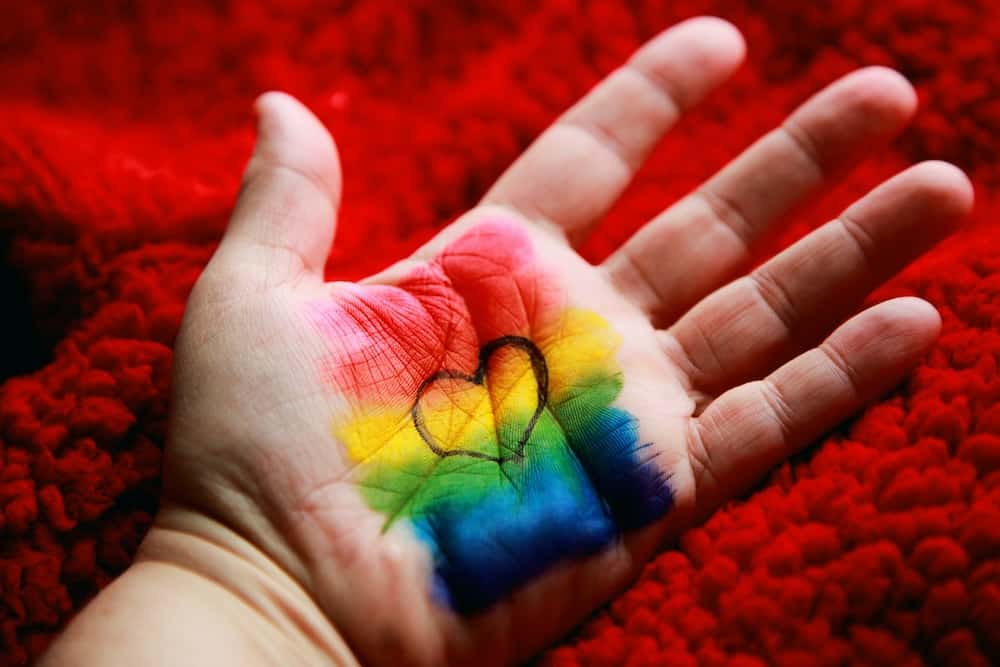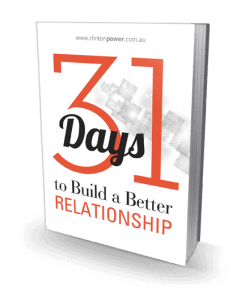Finding Your Tribe: A Directory of LGBT Support Services in Australia
In a world where acceptance and understanding are not always guaranteed, the importance of LGBT support services cannot be overstated. These services offer more than just advice and LGBT counselling; they provide a sanctuary as you navigate the complexities of identity, relationships, and societal pressures. For many LGBT communities, these organisations are a lifeline, offering you a sense of belonging, understanding, and empowerment.
As an LGBTQIA+ therapist who provides online therapy to LGBT people across Australia, I often refer clients to these vital national services, some of which are a specialist public health service. The purpose of this post is to illuminate the diverse range of support services available to you in Australia.
Whether you’re seeking emotional support, seeking community connection, or needing legal advice, there is a service out there to assist you. By providing a comprehensive guide to these resources, I aim to empower you with the information necessary to find the support and community you require.
This post is not just a directory; it’s a starting point for your journey towards healing, growth, and connection within the vibrant tapestry of the LGBT community in Australia.
The Types and Benefits of LGBT Support Services
LGBT support services offer a multitude of benefits that cater to the different needs and challenges faced by the gay, lesbian, bisexual, and gender-diverse community. Understanding these benefits can help you realise the full potential of seeking support and engaging with these resources.
Emotional and Psychological Support
One of the core offerings of LGBT support services is emotional and psychological support for LGBTQIA+ people. Navigating your identity, relationships, or experiences of discrimination and stigma can be profoundly challenging.
These services provide a safe and confidential space to express your feelings, fears, and hopes with therapists, counsellors, or peer support groups who understand and empathise with your experiences. This mental health support can significantly reduce feelings of isolation, anxiety, and depression, fostering a sense of well-being and resilience.
Trained professionals, who are often part of the LGBT community themselves or have specialised training in lesbian, gay, bisexual, and transgender issues, deliver these services. When you find a gay therapist, they will provide a safe, confidential, and non-judgmental space to explore your feelings and experiences.
Community and Belonging
When I ran my gay men’s group in Sydney, one of the most common themes I heard from the group members was loneliness and isolation. Many of the men felt they didn’t belong to a community or had friends they could truly rely upon.
Feeling part of a community can significantly impact your mental health and overall well-being. LGBT support services often facilitate social groups, events, and workshops that allow you to meet others with similar experiences and backgrounds. This sense of belonging and acceptance is invaluable, providing a network of support and friendship that can uplift and sustain you through life’s challenges and celebrations.
From social meet-ups and support groups to cultural and recreational activities, these networks allow you to engage with your community, build friendships, and find peer support.
Additionally, gender-diverse advocacy is an essential part of this ecosystem, advocating for the rights and visibility of gender-diverse individuals and providing platforms for them to voice their experiences and challenges. The most important thing is to find a well-being support service established for your specific needs.
Health and Wellness Services
LGBT health and wellness services are dedicated to addressing the unique health needs of the community, including sexual health, HIV/AIDS support, gender-affirming care for gender-diverse children, and mental health services. These services aim to provide accessible, inclusive, and affirming healthcare options for LGBT individuals, ensuring that everyone has access to the care they need without fear of discrimination or misunderstanding.
For my Sydney clients who need to speak with a doctor, I often refer them to a well-known LGBTQIA+ medical clinic because I know they will get fantastic medical care and attention from doctors who understand and work within the LGBT community.
Advocacy and Rights Protection
LGBT support services play a crucial role in advocating for the rights and protection of LGBT individuals. Many organisations work tirelessly to challenge discrimination, lobby for equal rights, and provide legal support to those who face injustice.
These services offer legal advice, representation, and advocacy on discrimination, employment rights, family law, and gender recognition. They also work at a broader level to advocate for policy changes and legal reforms that advance the rights and equality of LGBT individuals in Australia.
By connecting with these services, you can find support in addressing discrimination and understanding your rights, ensuring you are treated fairly and respectfully in all aspects of your life.
Educational and Employment Resources
Access to education and employment resources is vital for the empowerment and economic well-being of LGBT individuals. Various organisations offer programs and resources to support LGBT people in education and the workplace. This includes anti-bullying initiatives, diversity and inclusion training, scholarship opportunities, and career mentoring. These resources are designed to create more inclusive and supportive environments where LGBT individuals can thrive academically and professionally.
State-wide Directory of LGBT Support Services in Australia
New South Wales (NSW):
- Twenty10: Provides support services and social spaces for young LGBTQIA+ people. https://www.twenty10.org.au
- ACON: Focuses on HIV prevention and support, as well as LGBTQIA+ health and wellbeing. https://www.acon.org.au
- TransHub: Offers resources, support, and information for the transgender community. www.transhub.org.au
- The Gender Centre: Assists people with gender issues, offering a wide range of services and support. https://gendercentre.org.au
- The Inner City Legal Centre: Provides free legal services, especially focusing on LGBTQIA+ community issues. https://www.iclc.org.au
- Rainbow Families: Dedicated to supporting and connecting LGBTQIA+ families and prospective parents through resources, events, and advocacy. https://www.rainbowfamilies.com.au/
- Sydney Queer Muslims Inc: Offers support and community for LGBTQIA+ Muslims in Sydney.
https://sydneyqueermuslims.org.au
Victoria (VIC):
- Switchboard: Offers phone and web-based counselling and referral services for the LGBTQIA+ community. https://www.switchboard.org.au/
- Rainbow Door: Provides free support, information, and referral services for LGBTQIA+ Victorians. https://www.rainbowdoor.org.au/
- Thorne Harbour Health: Focuses on health and wellbeing services for the LGBTQIA+ communities. https://thorneharbour.org
- Transgender Victoria: Advocates for and supports the rights and well-being of trans and gender-diverse people. https://tgv.org.au
- Equinox: Provides transgender and gender-diverse health services as part of Thorne Harbour Health. https://equinox.org.au
Queensland (QLD):
- Diverse Voices: A non-profit organisation providing peer-based support for LGBTQIA+ people. https://www.diversevoices.org.au
- Queensland Council for LGBTI Health: Focuses on the health and wellbeing of LGBTQIA+ Queenslanders. https://www.quac.org.au
- Open Doors Youth Service: Offers support services specifically for young LGBTQIA+ individuals. https://www.opendoors.net.au
- LGBTI Legal Service: Provides free legal advice and assistance for LGBTI community members. https://www.lgbtilegalservice.org.au
Western Australia (WA):
- Living Proud: Provides support, information, and resources for the LGBTQIA+ community. https://www.livingproud.org.au
- The WA AIDS Council: Offers health and wellbeing services, focusing on HIV/AIDS. https://waaids.com
- MClinic: A sexual health clinic specifically for men who have sex with men. https://www.mclinic.org.au
- The Freedom Centre: Offers support and networking for young LGBTQIA+ people. https://www.freedom.org.au
- TransFolk of WA: Provides support and advocacy for trans and gender-diverse people. https://www.transfolkofwa.org
- GRAI: Supports older LGBTQIA+ individuals through advocacy, support, and research. https://grai.org.au
South Australia (SA):
- Shine SA: Provides sexual health services and support for all South Australians. https://www.shinesa.org.au
- Trans Health South Australia: Offers support and resources for transgender and non-binary people. https://www.transhealthsa.com
- South Australian Rainbow Advocacy Alliance: Advocates for the rights of LGBTQIA+ South Australians. https://www.saraa.org.au
- BeFriend South Australia: A service offering support and companionship to reduce social isolation. https://www.unitingcommunities.org
Tasmania (TAS):
- Working it Out: Provides support, education, and resources for LGBTQIA+ Tasmanians. https://www.workingitout.org.au
Northern Territory (NT):
- Northern Territory AIDS and Hepatitis Council: Focuses on the health and wellbeing of communities impacted by HIV and Hepatitis. https://www.ntahc.org.au
Australian Capital Territory (ACT):
- A Gender Agenda: Supports intersex, transgender, and gender-diverse people. https://genderrights.org.au
- Meridian Wellbeing Services: Health and wellbeing services focusing on the LGBTQIA+ community. https://meridianact.org.au
How to Choose the Right LGBT Support Service for You
Finding the right support service is crucial in your journey for help, understanding, and community. Here’s a guide to help you choose the best fit for your needs:
Understanding Different Services and What They Offer
Specialisation: Different services specialise in various areas such as mental health, legal aid, housing, HIV prevention, sexuality support, education programs, or other health services. Some offer free and confidential counselling or a referral service to the best organisation for you. Determine what kind of support you are seeking.
Target Group: Some organizations cater specifically to certain groups within the LGBT community, such as trans and gender-diverse youth, transgender individuals, or people living with HIV. Look for a service that aligns with your identity.
Service Delivery: Services can be provided in person, online, or via phone. Consider which mode of delivery you prefer and what fits best with your lifestyle and comfort level.
Assessing Your Own Needs and Preferences
Identify Your Needs: Reflect on what you are looking for – emotional support, advice on legal matters, medical consultation, or community connection. This will help narrow down the type of service you require.
Privacy and Confidentiality: Determine your comfort level with sharing personal information and ensure the service you choose respects and protects your privacy.
Location and Accessibility: If you prefer in-person meetings, look for services that are accessible to you. Consider travel time, physical accessibility, and service hours.
Contacting and Engaging with Services
Initial Contact: Write down your questions and concerns for your first contact. Be clear about what you are seeking from the service.
Ask Questions: Don’t hesitate to ask about their confidentiality policies, the qualifications of their staff, and what you can expect from their services.
Engagement: Give yourself time to engage with the service. Building trust and rapport takes time. However, if you feel the service is not the right fit, it’s okay to look for another option.
Feedback and Communication: Provide feedback about your experiences and communicate any changes in your needs or circumstances. This helps the service better cater to your needs and improve their support.
Choosing the right support service can make a significant difference in your well-being and journey. Remember, it’s okay to take your time to find the best fit for you, and it’s okay to change services if your needs or circumstances change.
Getting Involved and Contributing to the Community
Engaging with and contributing to the LGBTQIA community can be a rewarding experience that helps foster a sense of belonging, solidarity, and purpose. Here are some ways you can get involved and make a difference:
Volunteering Opportunities
Local LGBT Organizations: Many LGBT support services and community groups, such as The Ankali Project or Bobby Goldsmith Foundation rely on volunteers to run their programs and events. Offering your time and skills can significantly impact your local community.
Pride Events: Volunteering at pride parades such as Sydney Gay & Lesbian Mardi Gras, festivals, and other events is a great way to meet people, support visibility, and contribute to celebrating diversity.
Mentorship Programs: Consider becoming a mentor for younger or less experienced members of the community who might benefit from your guidance, understanding, and support.
Donation and Support Options
Financial Support: Donations to LGBT charities, non-profits, and service organizations help fund vital services and advocacy efforts. Even small contributions can make a big difference.
Resource Donation: Many organisations also appreciate donations of goods or services, whether professional expertise, clothing for those in need, or items for charity auctions and fundraisers.
Spread Awareness: Use your voice on social media or within your network to support LGBT causes, promote events, and educate others about the importance of equality and inclusion.
Community Events and Initiatives
Participation: Attend workshops, meetings, social events, LGBT sporting groups , and other community activities. Participation not only supports the organisers and the community at large but also enriches your own experience and understanding.
Organise Events: If you have the capacity and interest, consider organising your community events. This could range from social gatherings and educational workshops to fundraising events.
Advocacy and Campaigns: Get involved in advocacy campaigns or community initiatives that address issues facing the LGBT community. These can include everything from local community projects to nationwide advocacy efforts.
Getting involved in the LGBTQIA community can be a fulfilling way to support others while also growing personally. Whether volunteering, donating, or participating in community events, every contribution counts towards building a more inclusive and supportive society.
Conclusion
Accessing support within the LGBT community is not just about finding help in times of crisis; it’s about building a network of understanding, acceptance, and mutual respect. Whether you’re seeking emotional support, legal advice, or simply a sense of community, there are numerous services and groups ready to welcome you with open arms.
As an LGBTQIA+ therapist, I’ve seen first-hand the positive impact that these services can have on individuals’ lives, and I strongly encourage you to reach out and engage with the resources available to you.
Remember, seeking support is a sign of strength, not weakness. You are not alone in your journey, and there is a whole community ready to stand with you. Whether you’re looking for advice, friendship, or just a listening ear, there’s a place for you within the LGBTQIA community.
Additional Resources
For further reading and research, consider exploring the following links:
- LGBT Health: https://www.lgbthealth.org.au – Offers a comprehensive range of health services and resources to support the well-being of the LGBTQIA+ community.
- QLife: https://www.qlife.org.au – A national service for LGBT individuals providing peer support and referral.
- ReachOut: https://au.reachout.com – Offers support and information for those under 25 in Australia.
Hotlines and Emergency Contact Information
- Lifeline Australia: 13 11 14 – A national charity providing all Australians experiencing emotional distress with access to 24-hour free telephone counselling, crisis support, and suicide prevention services.
- QLife: 1800 184 527 (3 pm–midnight every day) – Provides nationwide telephone and web-based services to support LGBT people of all ages.
- Kids Helpline: 1800 55 1800—This is a free, private, and confidential phone and online counselling service for young people aged 5 to 25 in Australia.
- Beyond Blue: 1300 22 4636 – Provides information and support to help everyone in Australia achieve their best mental health.
Remember, it’s okay to seek help, and there are many people and organisations dedicated to providing the support you need. Don’t hesitate to reach out.
Are you an LGBTQIA+ person who is struggling in your life or relationships?
If so, contact me at Sydney Gay Counselling at (02) 8968 9323 to find out how I can help or book an appointment online.



